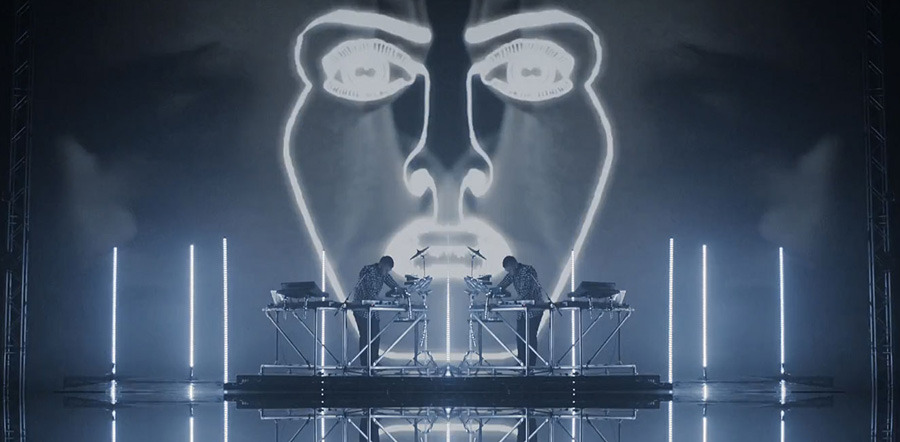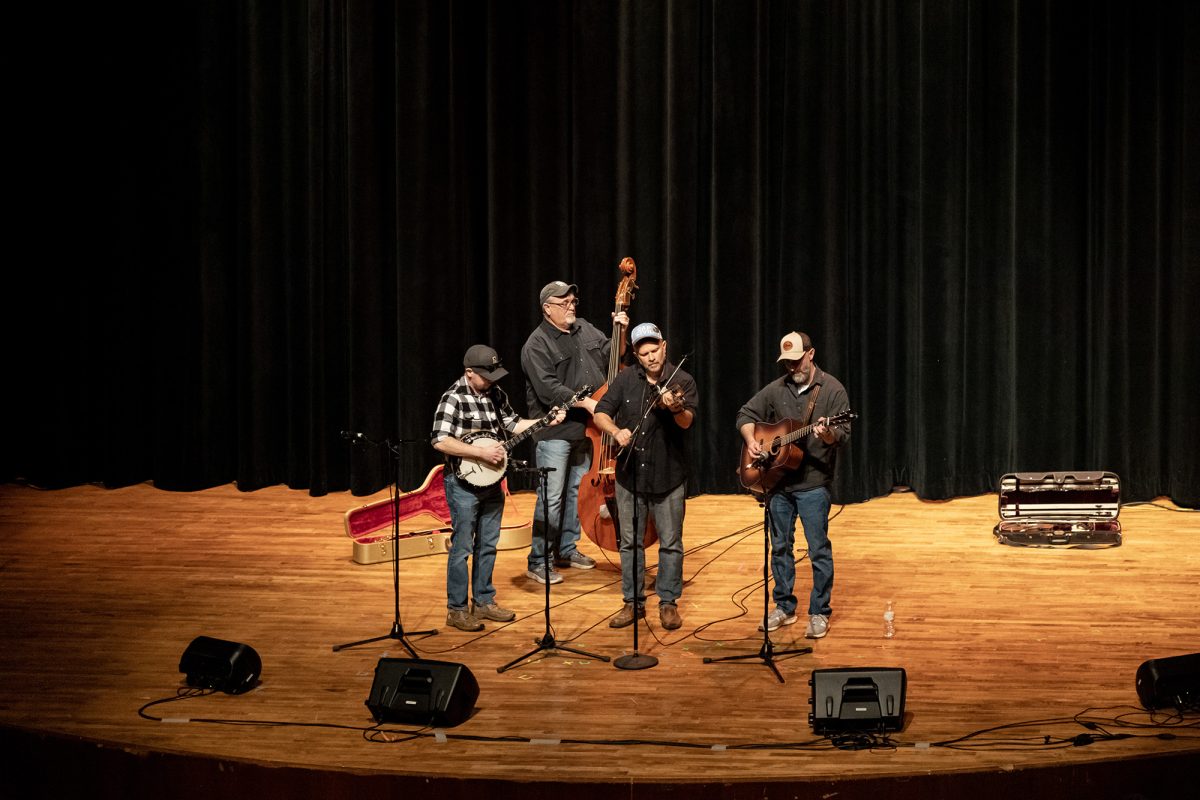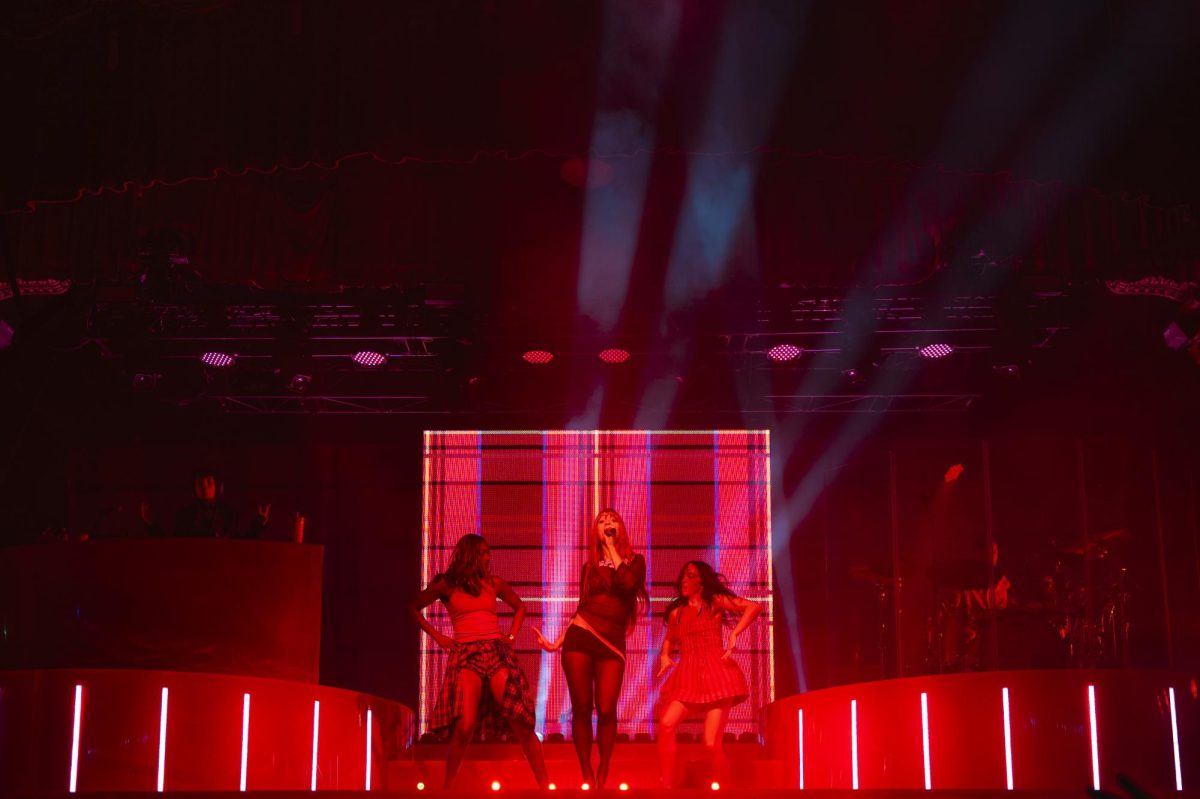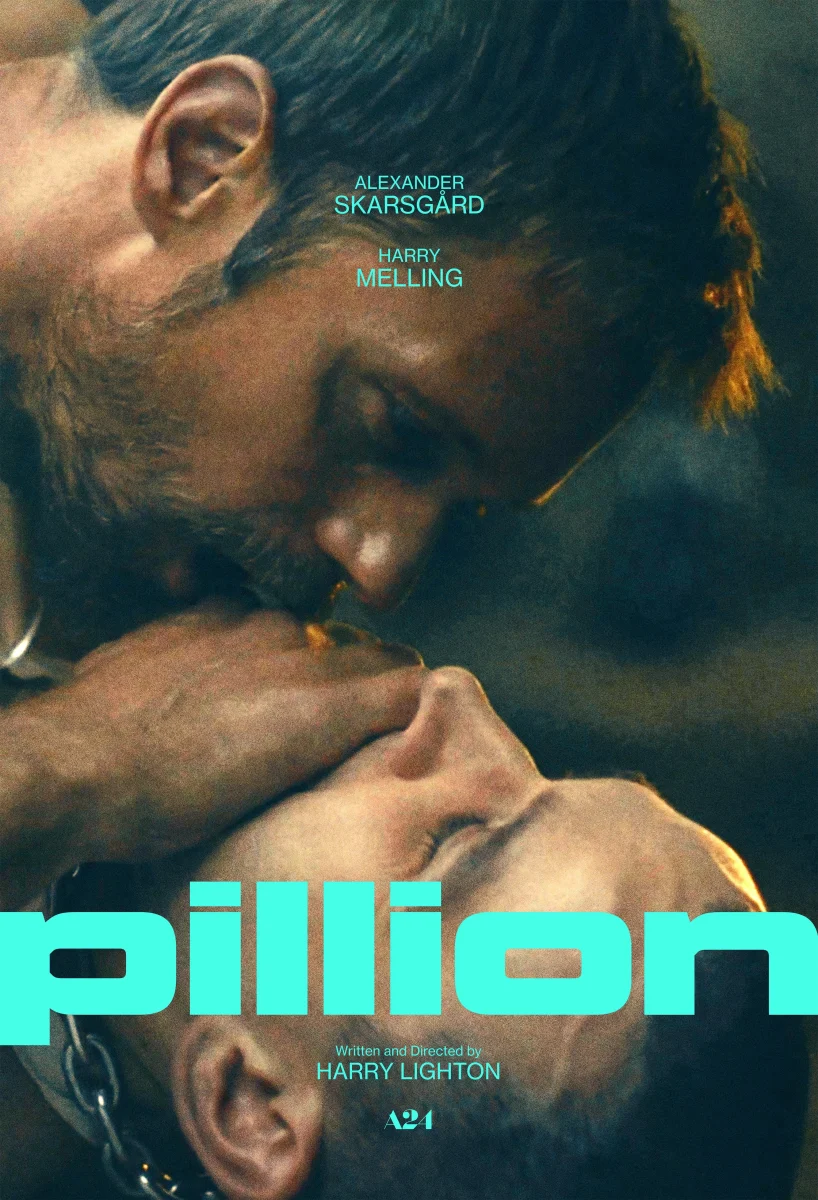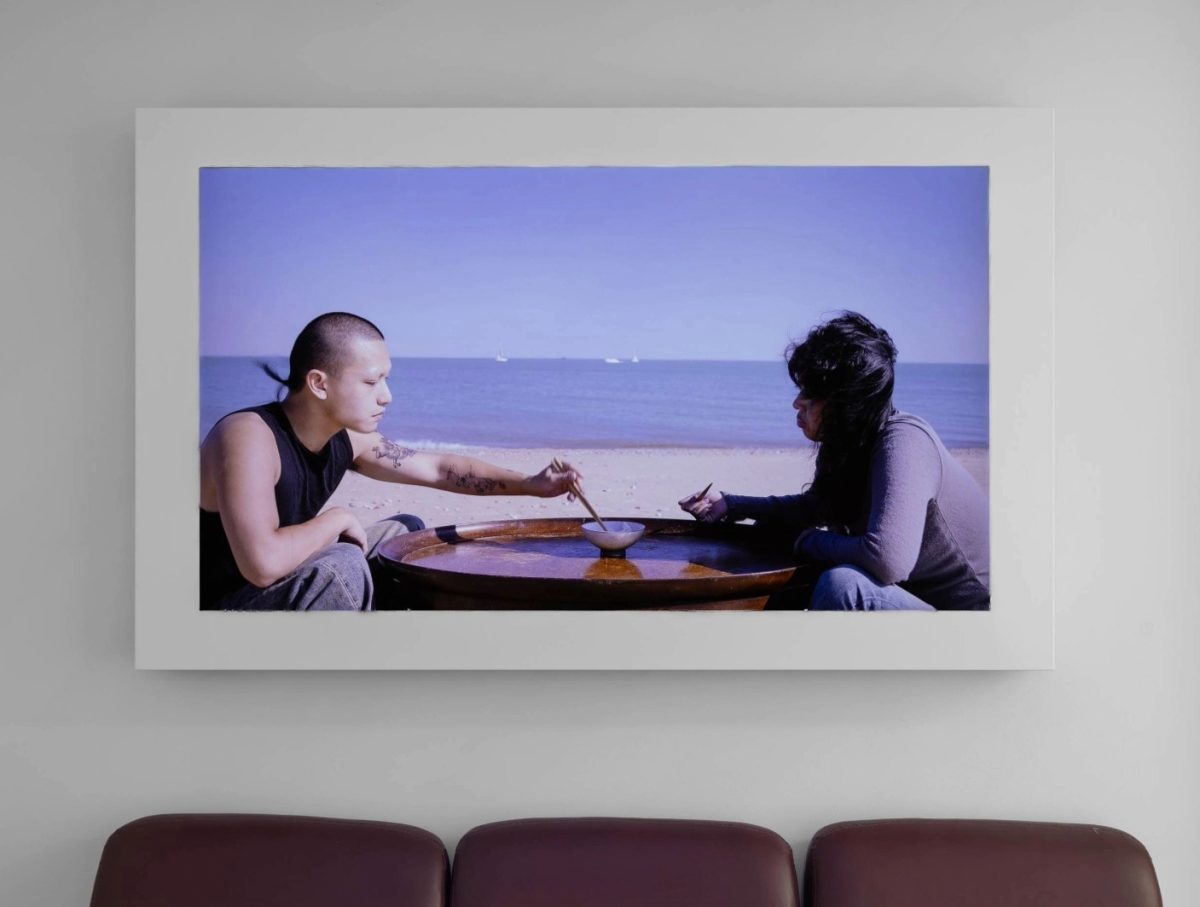The bare walls of Navy Pier were bathed in a brilliant amethyst light. The screen facing the crowd depicted two openmouthed profiles, the familiar bars of “Latch” trickled in, and the crowd started to roar. “Latch” is the song that catapulted Disclosure to fame. Topped off by Sam Smith’s silky falsetto, “Latch” is an intriguing blend of snappy staccato beats and slick synth swooshes. Disclosure completed the Chicago stop of its American tour for its new album, Caracal, with a classic. This left the crowd full of smiles and ringing ears.
The opening act of the night was Pomo, a Montreal-based EDM producer and instrumentalist. Unlike other artists in his genre, Pomo eschewed the increasingly tense buildups followed by a heart-thumping drop in favor of a more subdued and minimalist sound. Because Pomo was so intently focused on his music, producing on the fly without pre-recordings, there was little interaction with the crowd that was slowly filling the space. Following him was the more established Claude VonStroke, whose stuttering beats and thumping bass, reminiscent of Steve Aoki’s, got the crowd on its feet. The blinding strobe lights and fist-pumping sounds provided a welcome contrast to the more restrained Pomo, but they quickly became tiresome.
The audience was a mix of college students, young professionals, hard-core EDM enthusiasts, and middle-aged guys in button-down shirts. More downtown edge than Coachella, the vibe was characterized by beanies, backward caps, leather jackets, and flannels. By the time the opening acts had finished, the space around the stage was full but not uncomfortably so. There was plenty of space near the back for those inclined to dance.
After an intermission-like pause, Disclosure finally took the stage. The two brothers, Howard and Guy Lawrence from the U.K., took their places on two raised podiums. Facing each other in a Roman emperor style, each podium had a complete DJ setup. After a brief introduction, they launched into the song “White Noise” from their first album, Settle. The light show on the screen behind the brothers was simple but engaging, and the sound—not unlike the album itself—was slick and minimal, despite the added snarl of a bass guitar.
The set list was a mix of classics from Settle and some of the more popular singles from Caracal. While one might imagine that watching two music producers on stage would be dull compared to a live pop performance, the duo’s energy was infectious. The brothers threw themselves into their equipment and occasionally played the bass guitar and contributed vocals in songs such as “F for You,” “Jaded,” and “Willing and Able.” The production was more pumped-up than in the studio; the beats were bulkier, and there was more urgency and edge to the songs, particularly the spiky “When a Fire Starts to Burn” and “You & Me.”
Unfortunately, though, some of the crispness and focus that defined the sleek tautness of Settle was lost in the cavernous venue. The intricacies were slightly muddled, but Disclosure made up for it in the general energy and elastic flow of the music; it was full of well-timed swells, dips, and bulked-up bass, which alternated with more delicate diminuendos.
Howard Lawrence’s vocals were solid but often got lost in the ocean of sound. This was a recurring issue throughout the night. Standouts included “Magnets”—where Lorde’s vocals were perfectly languid and sultry above the pulsing beat—and “Nocturnal,” where The Weeknd’s ethereal voice floated above as Disclosure warped the music from a slow lullaby into a heart-pumping anthem.
While the show did not feature some of the duo’s more famous collaborators—after Sam Smith appeared in the L.A. show, there was hope that he might perform—the two live performances by Jillian Hervey of the duo Lion Babe and Brendan Reilley were particularly notable. Lion Babe performed the vocals for “Hourglass” and commanded the stage in her silver bodysuit and feather boa. Her strong, sassy vocals cut through the drum fog while the screen, which her figure partially shadowed, showed a montage. It looked like an intro sequence of an Austin Powers movie. During the encore, Reilly truly shined while singing “Moving Mountains.” His powerful falsetto rode above the soulful, swelling music, and the crowd swayed slowly in time.
Settle established Disclosure as a band to watch; Disclosure’s honed production skills, snappy beats, and well-matched vocal collaborators were a welcome relief amid the sea of sloppy, formulaic EDM beat-makers. Caracal found the Lawrence brothers playing it safer. While exploring a variety of sounds and collaborations, Disclosure softened the razor-sharp sound and mellowed slightly to create more of a radio-friendly electro R&B sound. Live, the two Brits managed the delicate balance between showing off their technical prowess and maintaining the crowd’s energy and enthusiasm. The result was nothing but fantastic fun.



